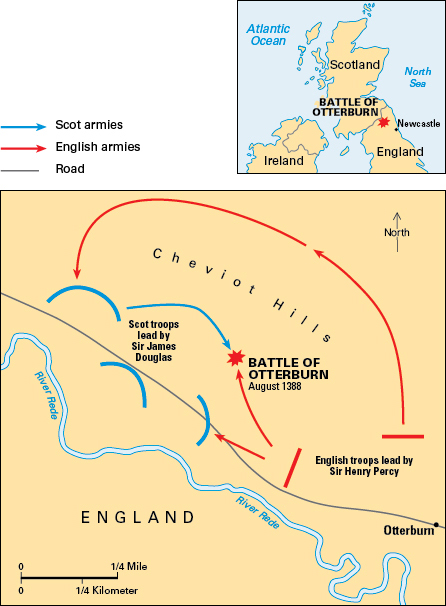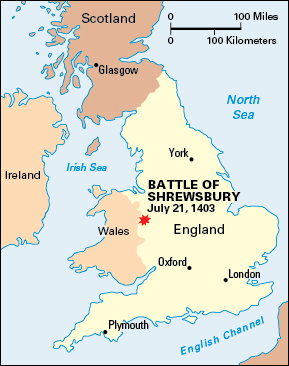Percy, Sir Henry (1364-1403), called Hotspur for his impulsive nature, was a powerful English nobleman and rebel. Percy was the eldest son of the first Earl of Northumberland. He was knighted at age 11 and served with his father in the defense of the Scottish borderlands. In 1388, the Scots captured Percy at the Battle of Otterburn (Chevy Chase). The English Parliament and King Richard II helped pay Percy’s ransom.

Freed from captivity, Percy went to France, where he served as the governor of Bordeaux before returning to England in 1398. In 1399, Percy and his father helped Henry of Bolingbroke replace King Richard II on the throne. Henry of Bolingbroke then became King Henry IV. On Sept. 14, 1402, as a warden of the Scottish Marches, Percy defeated the Scots at the Battle of Homildon Hill. In 1403, angry with Henry IV’s treatment of him and his family, Percy rebelled. He and his uncle, the Earl of Worcester, gathered an army and marched for Wales, where they were to join with Welsh rebel forces under Owen Glendower. On July 21, just before the Welsh border, the royal army of Henry IV caught up with Percy’s men. The bloody Battle of Shrewsbury followed, in which Percy was killed and his army routed. Percy’s body was first displayed in Shrewsbury. Then, beheaded and quartered, the pieces were sent to the far reaches of England to deter further rebellion. Most of Percy’s chief supporters were captured and executed.

The character of Henry Percy appears in two of William Shakespeare’s historical dramas, Richard II and Henry IV, Part I.
See also Glendower, Owen; Henry IV; Henry IV, Parts I and II; Otterburn, Battle of; Shrewsbury, Battle of.
